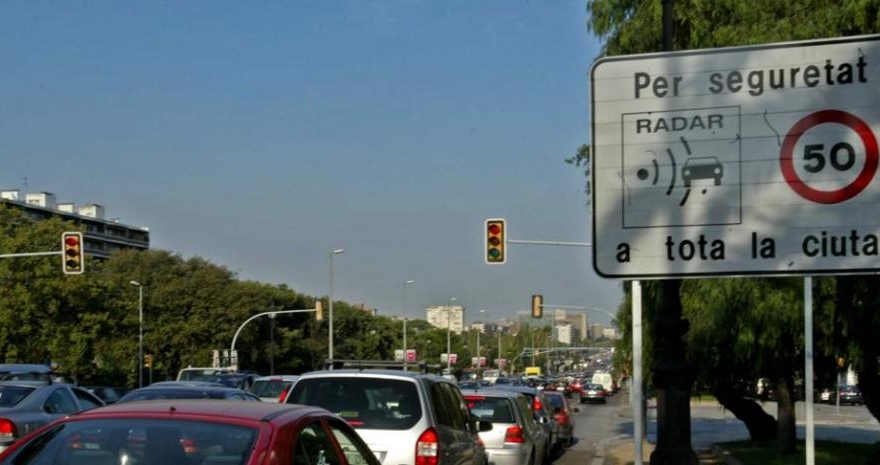
Inma Sainz de Baranda
Statement from the P(A)T-AP(A)T entity to denounce the decision of the Barcelona City Council to reduce the deployment of the 44 planned radars by more than half
Speed kills. Physics says it, the higher the speed, the greater the impact in the event of an accident and the more serious the injuries. Therefore, measures that help reduce speed save lives.
Statement from the P(A)T-AP(A)T entity to denounce the decision of the Barcelona City Council to reduce the deployment of the 44 planned radars by more than half.
Speed kills. Physics says it, the higher the speed, the greater the impact in the event of an accident and the more serious the injuries. Therefore, measures that help reduce speed save lives.
Those who obey the speed limits do not have to worry about speed controls. We would have to ask ourselves who bothers the radars. Or is it that the life and physical integrity of people do not deserve to put all the necessary measures to guarantee a safe system and avoid absurd suffering due to the loss of health or life of the citizens of Barcelona?
We remember that this is not a local issue, since in 2021 the UN Week for Road Safety promoted 30km/h in cities around the world. Barcelona is a pioneer in adopting 30km/h in many of its streets. A norm but, very unknown and widely ignored. We all need to respect the measures that prevent numerous accidents and improve coexistence between users, without forgetting that we must move towards Ciutat30 and continue working with Vision Zero (zero deaths and zero serious injuries).
We put figures in the case of Barcelona. In the latest balance of accidents for 2021 that was made public a few days ago, in a context still affected by the consequences of the pandemic and mobility restrictions, we have had 8 deaths and 81 serious injuries, of which 61 were in motorcycle or moped, and 13 have been pedestrians hit by motorcycles, cars and vans. If we add the 3 seriously injured people who were in a car or van, we have that a total of 87% of the seriously injured or dead have been in the urban context of car and motorcycle use. These figures are intolerable, and do not allow the use of these vehicles in cities to be taken out of the spotlight.
In addition, in Barcelona we have a number of injuries that has remained constant over the last decade with the exception of this last period marked by COVID-19. With an average of 11,000 disabled people a year and with the existence of serious and fatal victims on our streets, we do not understand cutting back on measures that seek to improve road safety for all people who move around the city.
Evolution of the number of people injured and people killed in traffic accidents in the city
of Barcelona 1987-2021

Source: Urban Guard
We know that speed is one of the main contextual conditions that determine whether or not an accident occurs (it affects reaction time and braking distance) and also affects its consequences.
According to data from the DGT, only 5% of crashes at 30 km/h end up having fatal consequences, compared to 50% at 50 km/h. Therefore, the policy of progressively reducing the speed of traffic in urban areas to 30 km/h and, above all, the effective enforcement of this limit with all possible means, including radars, is a policy that saves lives without arguments in against or possible attenuation.
We do not understand what Barcelona City Council intends by sending this message of understanding/complicity towards offenders. This change in criteria will cost lives and tragedies to hundreds of families, who will have to suffer losses and accidents with limiting consequences for their future due to avoidable events such as traffic accidents.
With the support of:
Barcelona Walk – Delegation of BCN of Catalonia Walk
Association for the Promotion of Public Transport
Bicycle Club of Catalonia – Bacc













